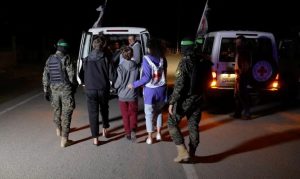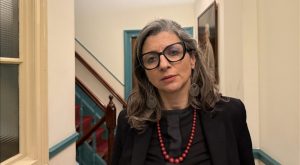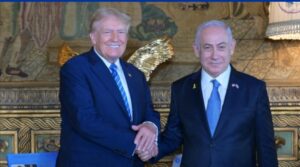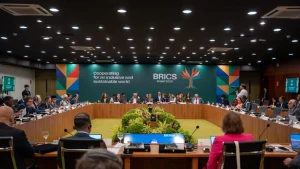 Sao Paulo, 7 Shawwal 1434/14 August 2013 (MINA) – US Secretary of State John Kerry has defended the US surveillance programs which recently threatened to cause a major rift in relations with Brazil and other Latin American nations. Kerry, who is in Brazil to strengthen bilateral ties as part of two-day tour that has already taken in a visit to Colombia, said the programs would continue despite calls from Brazil to end the spy programs.
Sao Paulo, 7 Shawwal 1434/14 August 2013 (MINA) – US Secretary of State John Kerry has defended the US surveillance programs which recently threatened to cause a major rift in relations with Brazil and other Latin American nations. Kerry, who is in Brazil to strengthen bilateral ties as part of two-day tour that has already taken in a visit to Colombia, said the programs would continue despite calls from Brazil to end the spy programs.
At a joint press conference in Brasília with Brazilian counterpart, External Affairs Minister Antonio Patriota, Kerry said the intelligence-gathering program at the heart of a spy scandal story exposed by Brazil’s O Globo daily newspaper had given “security to North Americans, Brazilians and others in the world” but that he would work to provide transparency for his Brazilian colleagues and others affronted by the surveillance.
“We believe that our intelligence service protects our nation, as well as others. We will continue to do it,” Kerry said, adding that the US had not been “surprised or upset that Brazil would ask questions” and that the regional powerhouse was “owed answers with respect to those questions and they will get them.”
“We will work together to make certain that [these issues] do not get in the way of all the other things that we talked about,” Kerry said, assuring reporters that the US was talking to their Brazilian partners about the program, although operational issues could not be discussed publicly, Anadolu Agency quoted by Mi’raj News Agency (MINA) as reporting.
Also Read: Trump Approves New Weapons for Ukraine, Weighs Tougher Sanctions on Russia
Patriota said that US-Brazil relations were maturing on many fronts, but criticized the program and warned that mutual trust and bilateral relations could be damaged if the US failed to give satisfactory explanations:
“We are facing a new type of challenge in our bilateral relation. We run the risk of casting a shadow of distrust over our work. We need to stop practices that violate sovereignty.”
Clarifications not an end to issue
The spy program revelations focus on operations by the United States’ National Security Agency (NSA), which is accused of accessing e-mails and telephone calls relating to ordinary Brazilians, as well as corporations and some political figures in other Latin American countries.
Also Read: Protesters Denounce Netanyahu’s White House Visit
Kerry said that US would maintain direct dialogue with the Brazilian government to “make sure” Brazil agreed with what the US was doing “to give security to North Americans, Brazilians and others in the world.
Patriota confirmed that both technical channels of communication had been established, alongside already open political dialogue, but clarifications were not an end to the matter:
“Clarifications are being sought, but the clarifications are not an end to themselves. Clarifications do not mean we accept the status quo. We need to see an end to practices which damage sovereignty, damage trust between states, and which violate individual freedoms which our countries cherish so much,” Patriota said.
Delicate moment ahead of state visit
Also Read: Trump Hosts Netanyahu at White House
The US secretary of state has arrived at a particularly sensitive time in US-Brazil relations, which had been experiencing what many deemed a “honeymoon” period after a much-praised visit by Barack Obama in 2011.
The Obama administration had hoped for warmer relations under incumbent President Dilma Rousseff, after a more at-arm’s-length approach to her predecessor President Luiz Inácio Lula da Silva, who had continued to cosy up to anti-American leaders, such as Venezuela’s late President Hugo Chávez and former Iranian President Mahmoud Ahmadinejad.
Both countries are now attempting to ensure the spat does not boil over and detract from more pressing matters, such as trade, and are keen to address the topic sufficiently so that it does not adversely affect President Rousseff’s state visit to Washington, D.C., in October — the first such visit by a Brazilian leader in two decades.
However, the US has made little apology for its surveillance program, which it stepped up following the attacks on New York and Washington, D.C, on September 11, 2001, and has been approved by all three branches of the US government.
Also Read: Trump Delays Tariff Deadline to August 1
Kerry has already spoken on the spy scandal during his one-day trip to the Colombian capital, Bogotá, on Monday, and cited recent threats to US embassies and the September 11 attacks as compelling argument for keeping the program alive.
“We are necessarily engaged in a very complex effort to prevent terrorists from taking innocent lives in many different places,” Kerry told reporters in Bogotá after meeting with Colombian Foreign Minister María Ángela Holguín.
In Brasília, Kerry said it was now important for Brazil to look beyond the issue: “I ask the Brazilian people to focus on the important aspects that our countries share — democratic values and determination in favour of diversity. [U.S.-Brazil] relations can have a positive global impact if we continue working as partners.”
“Seeking to prevent Middle East peace talks from collapsing”
Also Read: BRICS Condemns Israeli Occupation, Affirms Gaza as Part of Palestine
Kerry also told reporters that he is seeking to prevent his Middle East peace talks from collapsing, after Israel announced on Sunday that it would build new settlements in the disputed West Bank and East Jerusalem.
He said the US viewed the settlements as “illegitimate”, but acknowledged the land in question was “in places that would not affect the peace map”.
“The policy of the United States of America with respect to all settlements is that they are illegitimate, and we oppose settlements taking place at any time, not just the time of the peace process,” Kerry told reporters.
However, he added that he had first-hand assurances of Israeli Prime Minister Benjamin Netanyahu that Israel would not “disturb what might be the potential for peace going forward.”
Also Read: Crackdown on Press Continues: Israeli Forces Abduct Al Mayadeen Director in West Bank
“We still believe it would be better not to be doing it, but there are realities of life in Israel that have to be taken into account,” Kerry said, confirming he had spoken with Prime Minister Netanyahu, with whom he had had a “very frank and open, direct discussion of settlements”.
Palestinian President Mahmoud Abbas had also given Kerry his assurances of his commitment to negotiations.
“We will continue to work this very, very closely with Israelis [and] with Palestinians. And our hope is that we get to the real issues on which we ought to be focusing, which are the final status settlements — the final status issues. And I’m very hopeful we will get there very, very soon,” Kerry said.
UN Secretary General Ban Ki-moon is due to arrive in the Middle East later this week, the UN announced on Tuesday, with Jordan, Ramallah and Jerusalem on the agenda.
Also Read: BRICS Call for Ceasefire and Israeli Withdrawal from Gaza
Brazil praises US effort, condemns Israeli settlements
Kerry, who was speaking to reporters in Brasília at a joint conference with his Brazilian counterpart, Minister of External Affairs Antonio Patriota, a day before peace talks between Israel and Palestine are set to resume, said he believed negotiations would not be affected.
Patriota praised efforts made by the US secretary of state but made Brazil’s position very clear, attacking Israel’s decision to build fresh settlements:
“We condemn the Israeli settlements, which are made in contravention to the UN Security Council resolutions and a violation of international law. We consider that this will not contribute to creating a propitious environment [for negotiations],” Patriota told reporters.
Also Read: Trump Warns Additional 10 % Tariffs for BRICS-Aligned Nations
Negotiations between the Israelis and the Palestinians have been at a standstill for the past three years under former Secretary of State Hillary Clinton, but John Kerry — who assumed the position in February — was keen to make his mark on the Middle East talks.
The announcement by Israel to build thousands of new settlements, made just days before negotiations were due to resume, is being seen as the greatest threat to the latest round of talks to date.
However, many believe the area in question will be apportioned to the Israelis in any eventual peace accord anyway, and therefore will not derail the new process.
The previous impasse in talks was generated by an Israeli unwillingness to stop the building of settlements outright, coupled with a condition by the Palestinians that all settlement building be stopped before talks could resume.
Also Read: Trump to Meet Netanyahu at White House amid Gaza Ceasefire talks
Israel has begun releasing 104 Palestinian prisoners as a Palestinian prerequisite for talks to restart. Analysts say the new settlements were a way to detract from this and assuage those who reject the two-state solution. (T/P09/E1).
Mi’raj News Agency (MINA).
Also Read: Pro-Palestinian Groups Protest Netanyahu’s Visit to Washington





























 Mina Indonesia
Mina Indonesia Mina Arabic
Mina Arabic